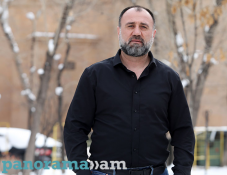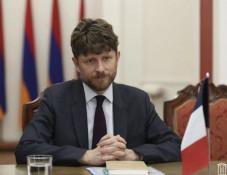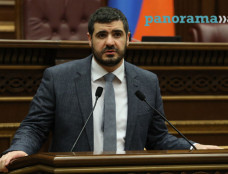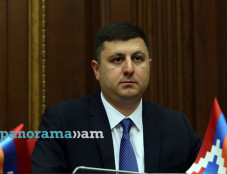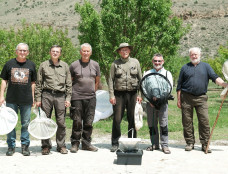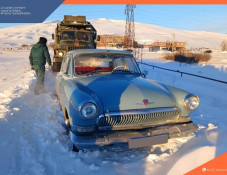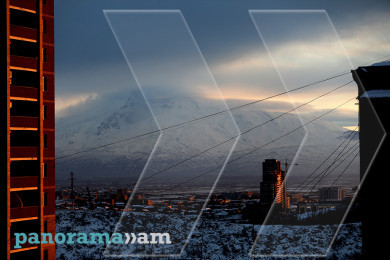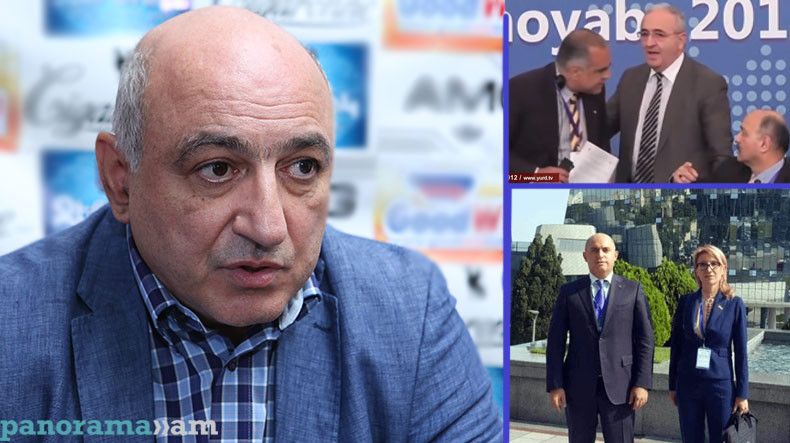
Heading to Baku again: interview with YPC’s Boris Navasardyan
Below is Panorama.am’s interview with President of the Yerevan Press Club (YPC) Boris Navasardyan
- Mr. Navasardyan, according to the recent media reports Armenian journalists are leaving for Baku to be followed by Azerbaijani journalists’ visit to Armenia. How would you comment on this fact and the confidentiality of the visit?
- It has long been expected, since it was also arranged during the meetings at the official level, and naturally the international mediators tried to push forward something, at least in one direction. And since the matter was on the agenda of negotiations, it was probably the easiest thing to do.
In the meantime, I am concerned over the fact that, for some reason, all this is done in secrecy. I can understand that they [the organizers] may have thought that there are, of course, circles in Azerbaijan and in Armenia too, which may not like it and may organize different preparatory work, including provocative actions.
In any case, I think that such provocations, which can be in the form of a picket, are even more dangerous when societies begin to question why they keep it a secret. It is likely to get very negative feedback from a positive impact.
The only way out here lies perhaps in the fact that those journalists who will visit Azerbaijan, and later Azerbaijani journalists who will visit Armenia, must provide a coverage of events that will be perceived by the public as very important. And first of all, I hope, there will also be interesting meetings to adequately present what is going on in that country, what sentiments, perceptions dominate there, without aggression, without attempts to discredit what they have seen, which we have witnessed in numerous occasions. I suppose it would spark much controversy, but, in any case, we probably need to start from something.
- There are concerns that these visits are just aimed at filling in documents, rather than contributing to the peace process. What can you say about it?
- Yes, I think that the mediators attach more importance not to the content of the visits, but, as a matter of fact, to recording the fact that they have managed to achieve something. Anyway, no matter what games are behind it, I hope that they, the journalists, will spare no effort to carry out their professional duties to clear way for the future. No matter what relations Armenia and Azerbaijan have and at what extent the negotiation process is stalled, the countries and their societies should be informed about each other.
- As a person who has had contacts with Azerbaijani journalists or representatives of civil society on different international platforms, how would you assess their attitude, as we know that people often, if not always, participating in international forums and events are prepared by state "slogans". In this case, how do you imagine the contacts between our and their journalists?
- I can only state that, indeed, the developments of recent years, roughly from 2000-2001, the dynamics are rather negative in Azerbaijan with regard to bilateral contacts. Gradually, we have come to observe that there are fewer people who are for open and constructive contacts and more people who have a clear-cut agenda, are well prepared and have made commitments to showing a specific attitude during various visits and events.
Gradually, there are fewer people who seek to benefit the process, and it’s not necessarily linked to benefits on their side, and also to the understanding that there is also another side whose interests must be respected. But this does not mean that there are no longer such people in Azerbaijan. I know such people and if this precedent is continuous, international mediators should be able to find those people and involve them in contacts and dialogue, because otherwise this initiative will be discredited.
- On 13-14 November, Riga hosted the Eastern Partnership Media Conference which you also took part in. What results has it yielded?
- This year the Eastern Partnership Media Conference was dedicated to the development of the media as a business, different models were presented and discussed, as well as the ways in which the EU should continue to support the media in the Eastern Partnership countries.
The European Union has conducted an in-depth and serious study to figure out the steps that should be taken. The study only needs to be adequately perceived by the bureaucrats, that they understand the mistakes, which are numerous, and direct their efforts and resources to ensure that in this region, or at least in Armenia, Georgia, Ukraine, Moldova, where there is an opportunity to develop free press and where they spend money, they really contributed to the functioning of media protected from various narrow, private interests in the market.
A group of reporters from Armenia will pay a visit to Baku on November 17, according to Azerbaijani media reporters. Azerbaijani journalists, in turn, are reportedly set to visit Armenia on 18-19 November. Panorama.am contacted Armenian Foreign Ministry spokeswoman Anna Naghdalyan for comments, but the official neither confirmed nor denied the reports.
Interview by Anna Mkrtchyan
Newsfeed
Videos





